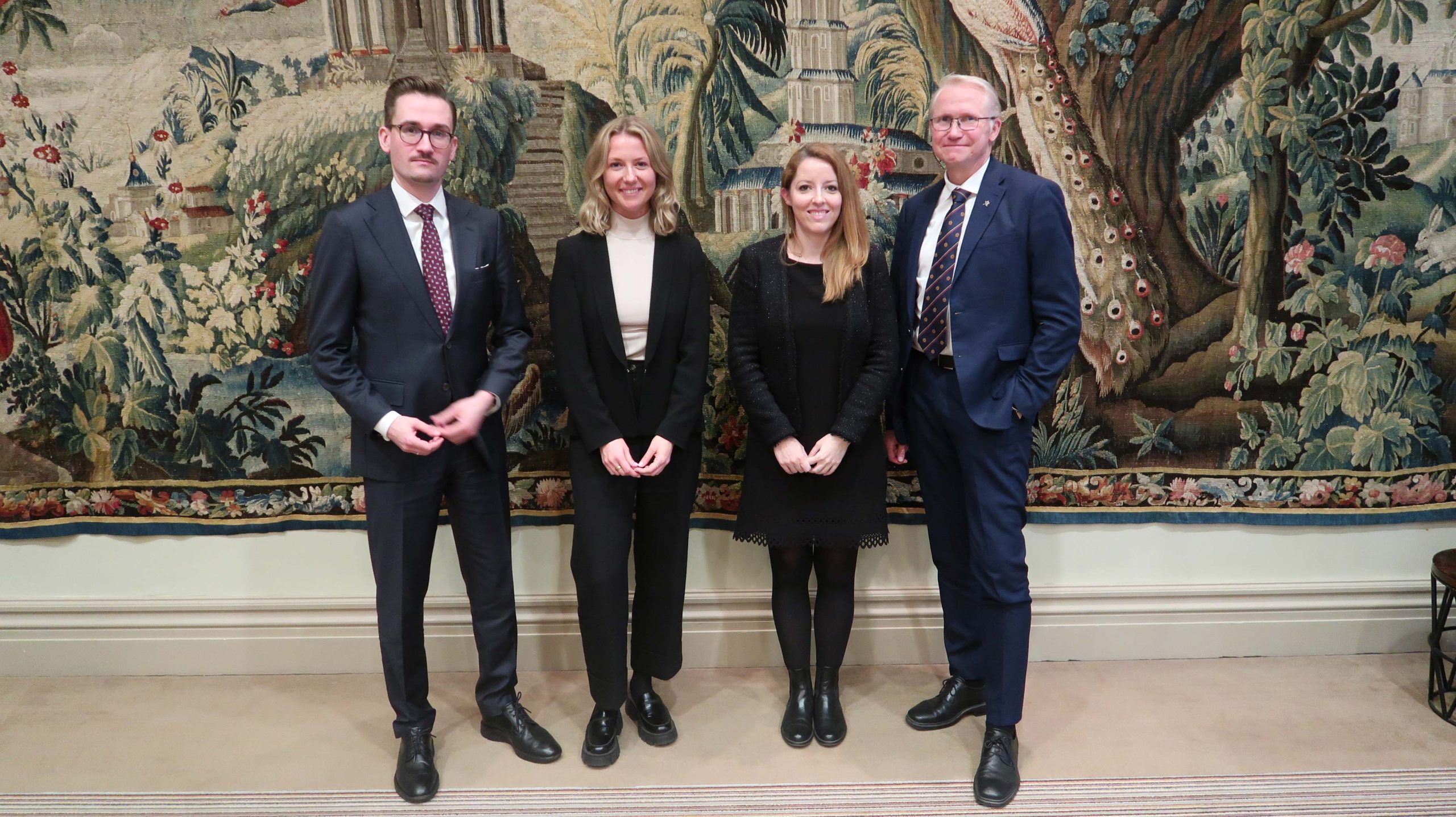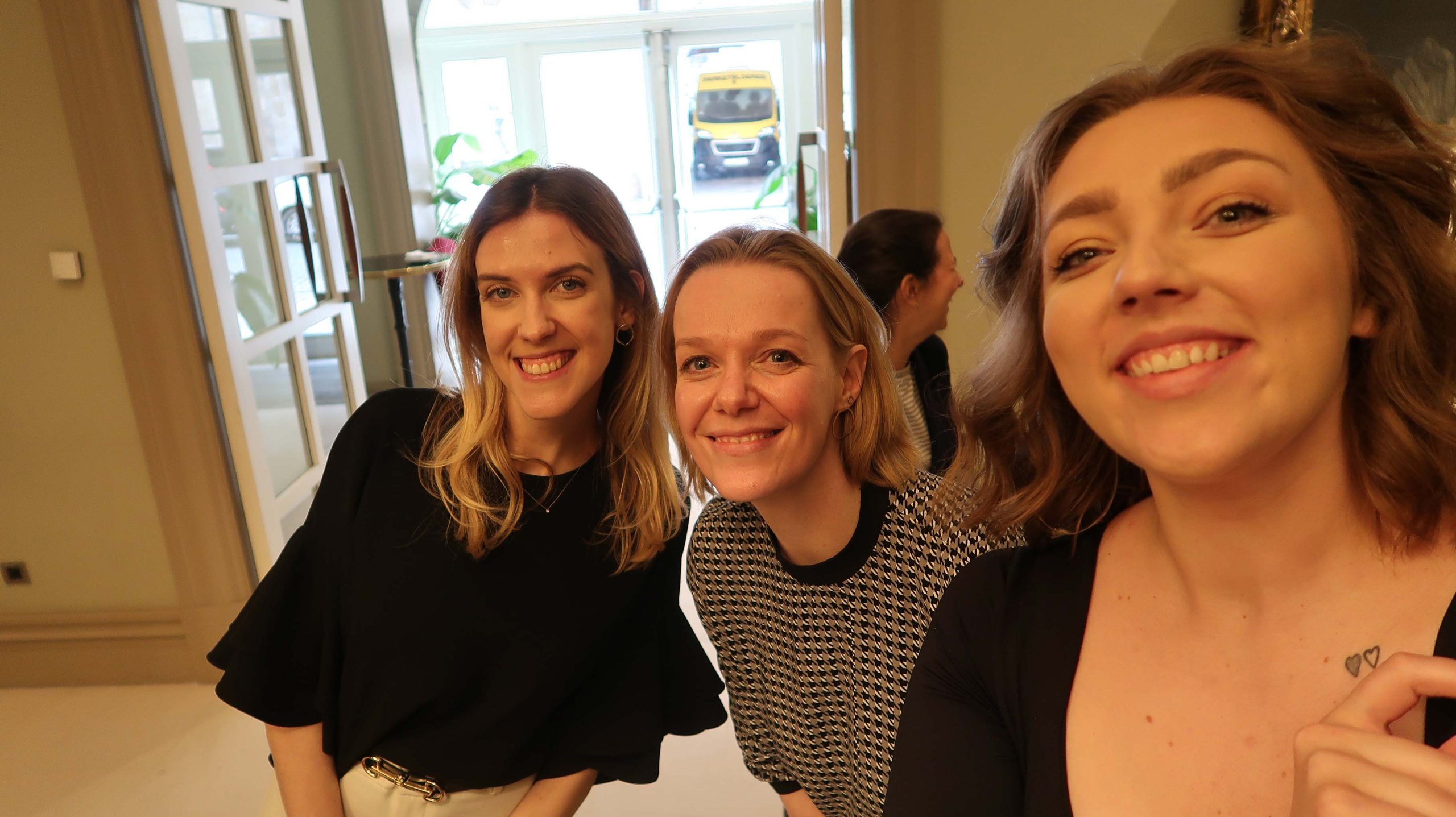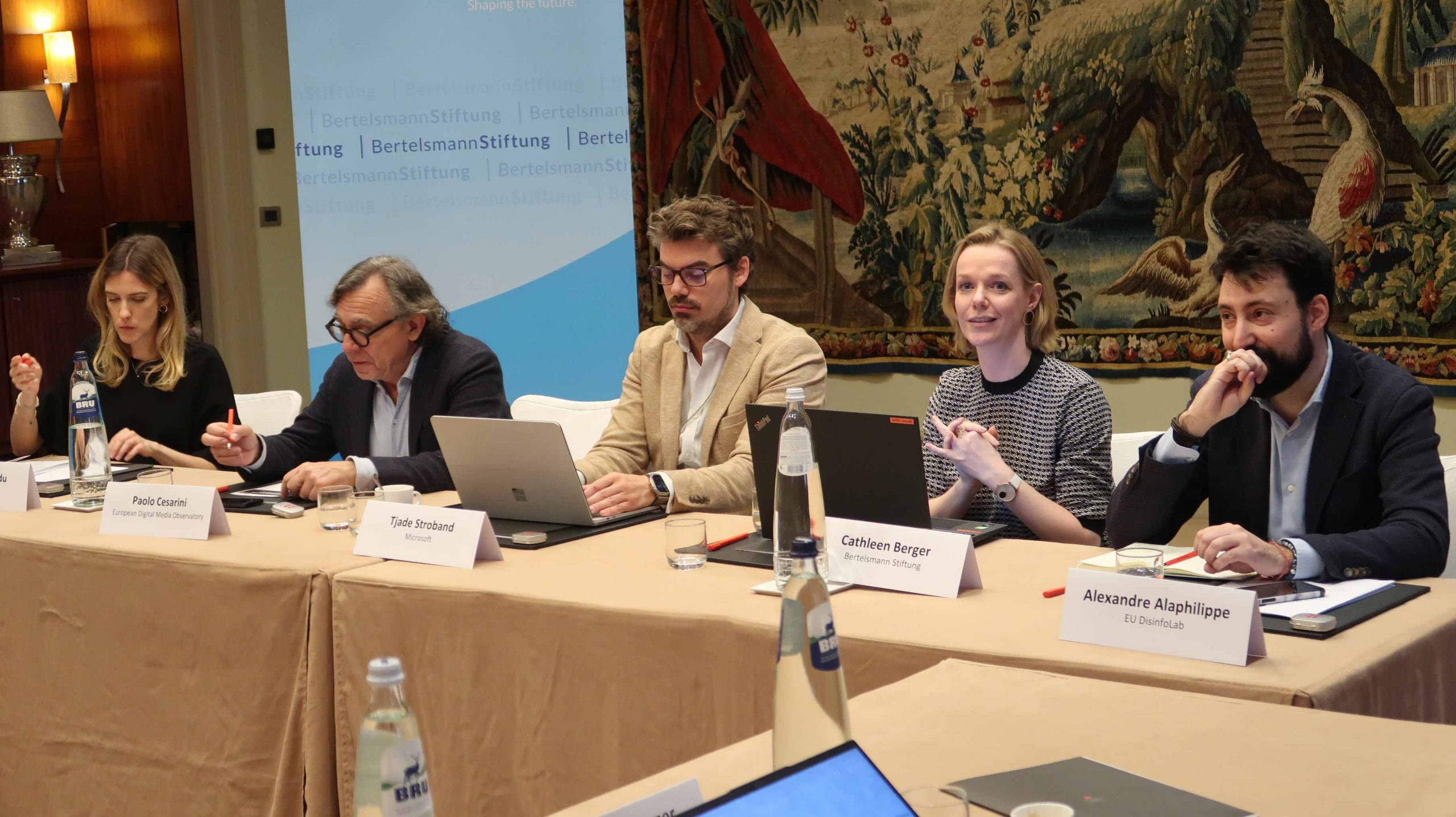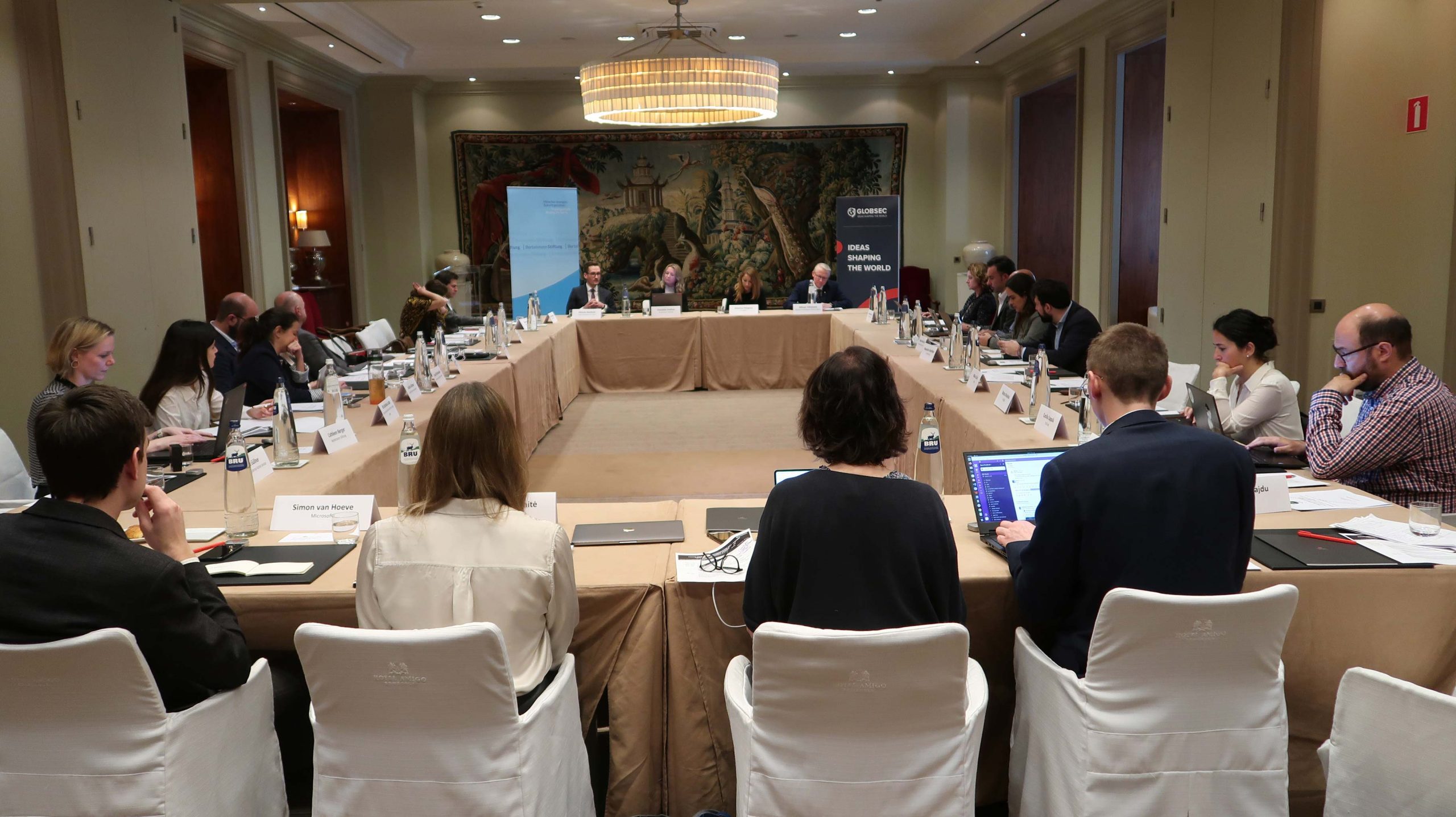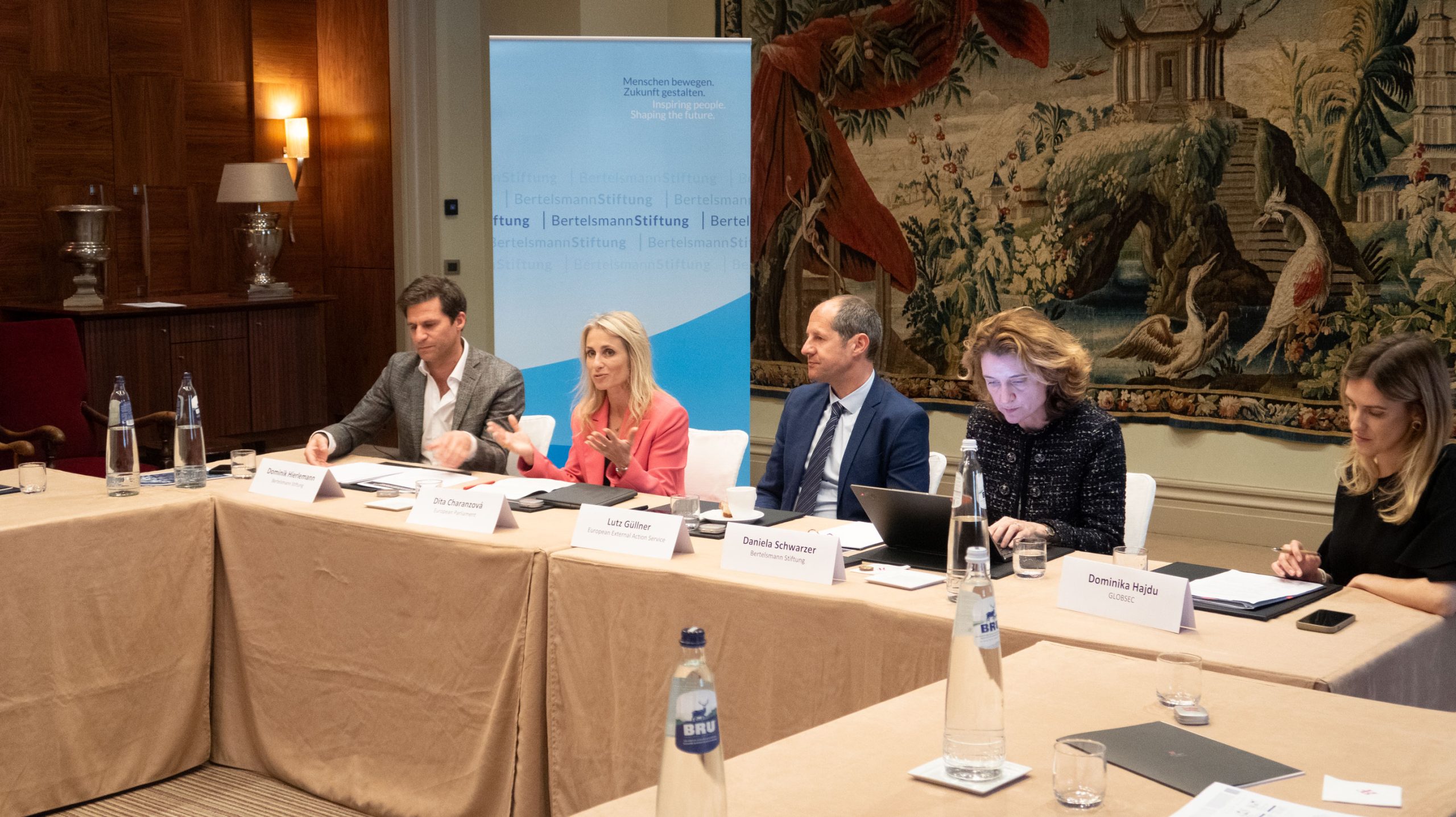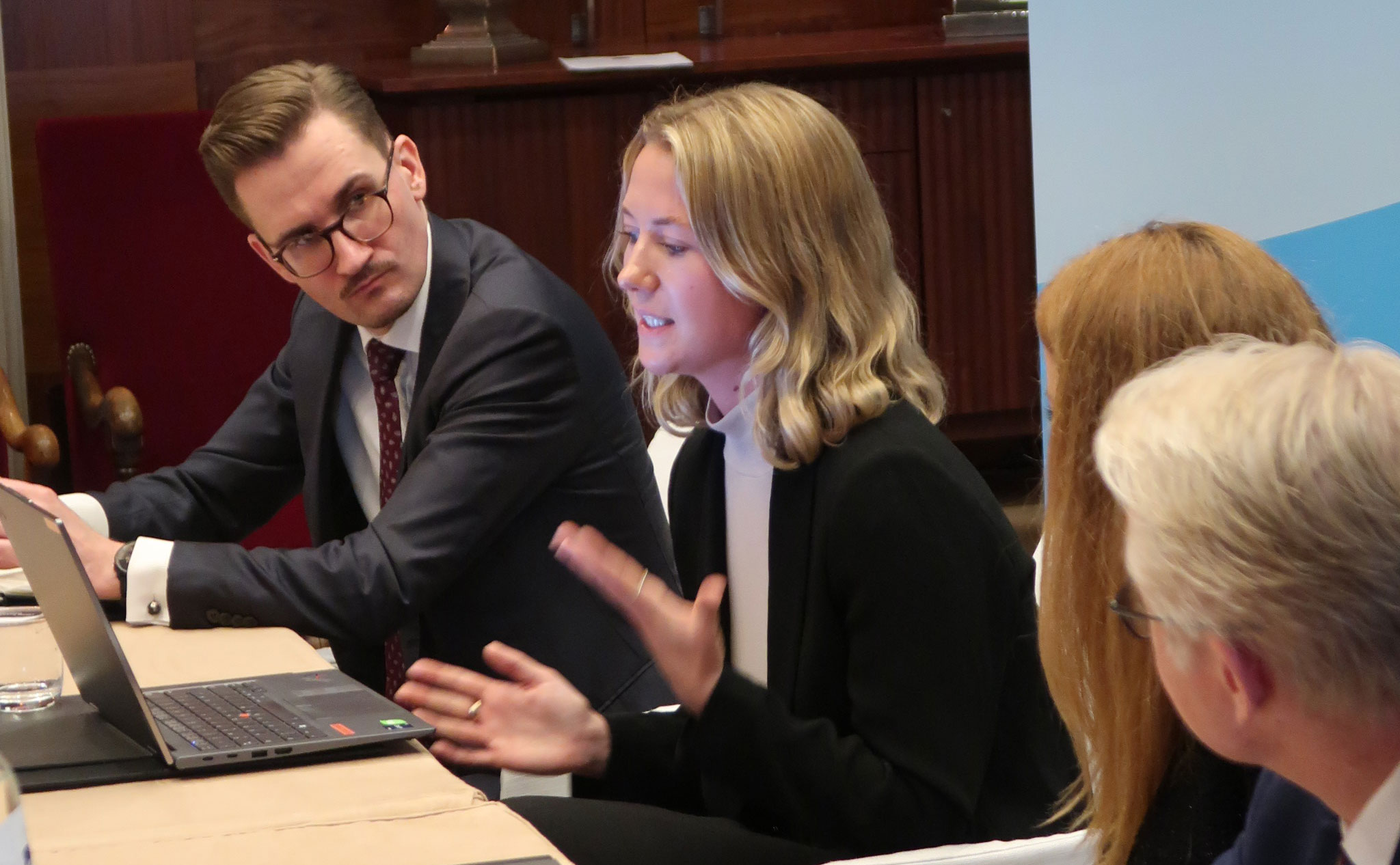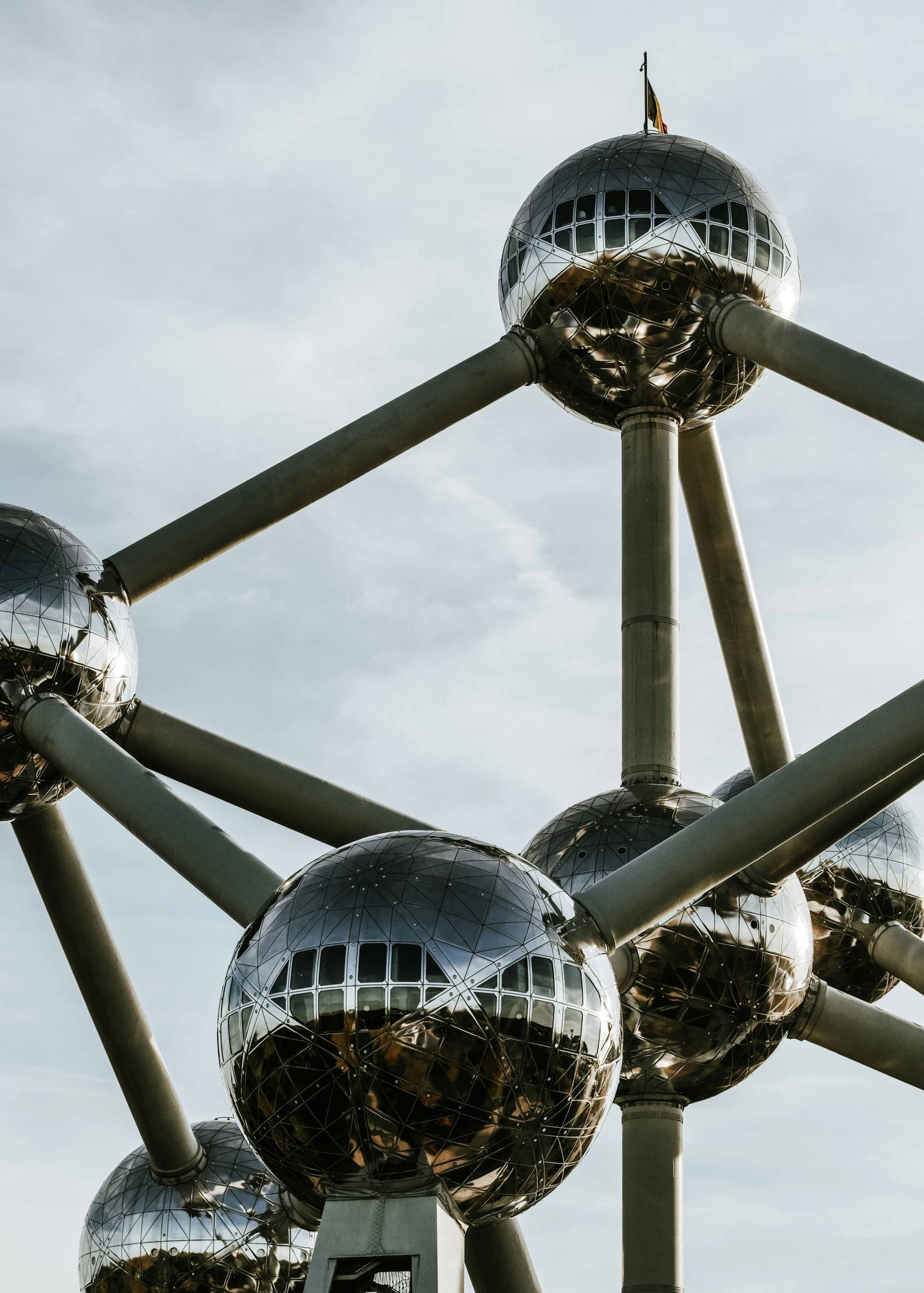During this one-day workshop, a diverse, cross-sectoral set of around 40 experts shared their perspectives and insights in four thematic sessions. The overall goal in all of them: Indicate next steps and develop recommendations for the next EU Commission.
The first session was focused on assessing what has changed in the European Union since the 2019 elections – and whether the EU is well prepared to counter disinformation ahead of the EU elections in June 2024. While the Digital Services Act (DSA), the Code of Practice on Disinformation, the AI Act and others were recognised as regulatory milestones, there was hesitancy in the room in terms of implementation, enforcement, and evaluation of impact. Concerns were raised around sustainable funding for civil society organisations; reliable knowledge networks across stakeholders, within sectors, and among organisations; as well as potential gaps in electoral oversight bodies when it comes to AI-generated election content that is not shared through official political advertising channels. In addition, there were calls to be mindful of a Counter-Brussels effect of EU regulation and to expand data access under the DSA to international researchers.
A second session focused on the role of governments in countering disinformation. Participants discussed a typology of various possible state actions, including mitigating false information, establishing new, specialised agencies, supporting public media environments, the governance of digital platforms, and increasing transparency for governmental communication. Building on experiences from Latvia and Sweden, the discussion highlighted that whole-of-society approaches are critical, that counter-disinformation efforts must necessarily span across policy fields and sectors, and that context is crucial for measures to be effective. Lastly, there is a tendency to focus on foreign malign interference, also because it is easier to curb, whereas limiting domestic influence actors must strike a delicate balance and ensure higher standards for protecting free speech.
The third session focused on innovative and established practices in countering disinformation across civil, private, and media sectors. Panelists explored cross-sector collaboration and knowledge sharing, especially in leveraging new technologies. Key points included the need for sustainable collaboration amid mounting challenges, the crucial role of the media sector despite facing various hurdles, and the insufficient transparency of social media platforms’ measures to ensure election integrity.
The final panel discussion focused on recommendations for the upcoming European Commission. Challenges highlighted included navigating the digital transition amid the pandemic and defining disinformation competencies within governmental entities. Emphasizing disinformation’s security implications on democracy, key recommendations included establishing knowledge hubs, adopting a comprehensive approach, and increasing resources to bolster EU’s role in countering disinformation.


